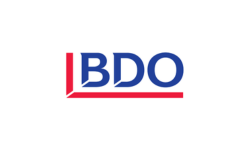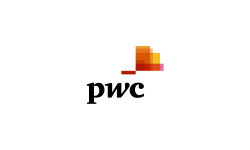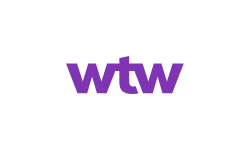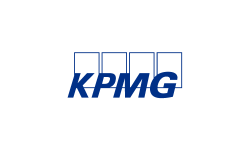Board Chairs’ New Year’s resolutions for 2024

John Harte (jh@integritygovernance.com +44 774 163 2563) is managing partner of Integrity Governance, a partnership of specialist governance advisers to boards, owners and CEOs around the world. www. integritygovernance.co.uk
John Harte looks at the role board Chairs need to play in 2024, in a continuing climate of volatility, uncertainty, complexity and ambiguity.
Every New Year brings opportunities and challenges for boards. Political uncertainty and geopolitical tensions are set to be big issues in 2024. This is due to elections taking place in the UK, USA, European Parliament and Taiwan. In fact, boards now lead in a world that has not been as politically uncertain since 1938. Then there are continuing conflicts in Ukraine and Gaza, plus the threat of North Korea and China.
The global economy is anticipated to grow at a slower rate than expected, particularly due to concerns over China’s economic prospects, and there’s going to be challenges for organisations around the fast pace of technological disruption.
All of these factors mean that 2024 is set to be more of the same, with volatility, uncertainty, complexity and ambiguity (VUCA) to be navigated by boards.
Those boards struggling to keep up need to recognise that the pace of change today is as slow as it’s going to be for the foreseeable future. The onus is on the pivotal role of the leader of the board – the Chair – to help the board plot a path through these uncertain times to business success.
Turn VUCA to their advantage
The Chair has a vital role to play in using the environment created by VUCA to their organisation’s advantage. This requires them to counter volatility with vision. To achieve this they should encourage the board to accept and embrace change, and have the vision to set a course through the chaos. As part of this the Chair must evolve the culture on the board, not only to set a clear vision, but to successfully meet the wider demands of VUCA.
Secondly, Chairs need to ensure there is understanding on the board in place of uncertainty. This requires them to encourage the board to listen and learn from stakeholders, understand their organisation’s capabilities to react to changing circumstances, and look at how this can play to their strengths. This should include experimenting with certain scenarios to see how they might play out.
The Chair should ensure that the board has courage in the face of complexity, to make bold decisions based on measured risk. It’s the only way for organisations to successfully move forward at this time and potentially benefit from new revenue streams.
Finally, in place of ambiguity, Chairs must foster a culture of agility and adaptability, not only on the board, but beyond to the management and the wider workforce. Doing so releases the potential of directors and employees to provide new ideas to help take the business forward, by engendering a curiosity and fearlessness to inspire creativity, innovation and continuous improvement. To accomplish this the Chair and the board must lead by example in demonstrating diversity of thought and ideas, as this will give confidence to the rest of the business to follow suit. However, it’s vital to realise that it’s only those boards that are themselves diverse which will have true diversity of thought.
Focus on board diversity and inclusion
Diverse boards deliver different thinking, a broader range of options and ultimately better decisions and outcomes. It’s not about political correctness it’s about addressing the views of so many stakeholders who no longer ask ‘why diversity?’ but now want answers to ‘please explain why not?’.
Diverse boards with an inclusive culture are more effective than those that aren’t. It’s time for a grown-up conversation on diversity rather than focus solely on the demographic aspect of it, which while important to address, is only a one part of the journey towards true diversity.
The Chair should look at the board through the prism of the five drivers of diversity – demographics, skills, experience, thinking styles and circles of influenceTM – and consider how well the current line-up matches up. If the board is not diverse in all these areas then action needs to be taken.
Create a culture of inclusivity where all are listened to
A big challenge for Chairs in 2024 is creating a culture where an individual from a different demographic, skill set, experience, thinking style or circle of influence on the board feels welcome, wanted, respected, listened to and valued. This means creating a culture of inclusion, so different perspectives are heard when it comes to decision making. Otherwise, diversity without inclusion will be a tokenistic illusion.
Additionally, it is easy to focus on the points raised by a vocal minority of directors. It’s only possible to deliver effective decision-making by taking on board different perspectives, in particular the quieter voices in the group, and making sense of them. The Chair must recognise this and use emotional intelligence to encourage all voices to be heard on the board and beyond, because this will help steward the creation of value. The New Year is an overdue opportunity to recalibrate the inclusiveness of our boards.
Identify blind spots in the boardroom/organisation
Chairs need to start the New Year asking themselves what are the blind spots on the board and for me personally? Often, they are areas outside of the skills, experience and understanding of directors and those within the wider organisation. These blind spots could be very costly for businesses in the medium- to long-term in areas such as cyber security and AI, for example.
Understand new technology
Chairs must gain a greater understanding of fast-evolving technology and its implications to board operations and that of their organisation, particularly in the areas of AI, cyber security, data and privacy. While they are not expected to be experts in technology, they should signpost boards to needing technical expertise, where appropriate. The pace of change in technology is accelerating and good Chairs will consider the approach to AI, the insight sitting around the board, plus the foresight to understand the forces of change. Good boards are already working on a code of conduct for AI and governance structures that ensures their approach is ethically human centric, with clear oversight, accountability and third- party assurance.
Focus on productivity
There needs to be a sharp focus on productivity against a backdrop of significant embedded cost inflation. In addition, the contentious impact of working from home (WFH) on productivity means that we need to think about ways of working to enable productivity. The productivity issue does not stop there. Board leaders need to think about the value added versus the cost of their governance processes, even down to productivity, effectiveness, and return on investment from their governance processes. If the Chair of the board is not leading a clarifying conversation about governance costs versus governance value, then we have to ask ... who is?
Focus on foresight and informed insight
In today’s uncertain world the ability to have foresight: the capability to anticipate and prepare for the future, and informed insight: the ability to interpret and respond to the present, have never been more important.
It is only by having foresight and insight live in the boardroom that boards will be well positioned to deliver successful decision-making and identify and act on new opportunities to provide long-term growth.
Therefore, it’s vital that Chairs ensure boards are focused on both of these lines of sight, and precedence is not given, as it often is, to oversight on the work of management, and also hindsight, looking back, at the expense of looking forward.
Think about the impact of uncertainty when risk planning – potential harms and opportunities
Difficult times faced by organisations over the last few years have highlighted the importance of boards to effectively understand and predict risk. The Chair needs to be at the heart of this – in supporting the board in understanding risk, setting the risk appetite, structure for risk management, and ensuring that it’s being mitigated, managed and monitored, along with challenging assumptions around it.
As part of an effective risk-planning process the Chair should highlight to the board that it’s not solely about avoiding losses, but in enabling value creation through looking at risk as an opportunity. Implemented appropriately risk planning can deliver a new opportunity, a competitive advantage, to drive long-term business success. After all, boards are charged to generate the best return from the capital of the company, which calls for forward thinking and the ability to anticipate the impact of uncertainty on outcomes.
Ensure role clarity
One of the most important tasks of the Chair continues to be ensuring role clarity for directors, because role clarity is at the heart of an effective board. Having a clear definition of roles for those on the board, particularly those between themselves and the CEO, is particularly vital if the board is to function well in an age of uncertainty.
Undertake board reviews to ensure it’s ‘fit for the future’
Chairs must focus on developing the board, the CEO and themselves to increase the capacity, capability and effectiveness of the board, and ensure that the board, the governance of the organisation and the leadership of the business are ‘fit for the future’. Regular reviews prompt a periodic re-examination of how ‘fit for the future’ the board or director is, enables a culture which is performance focused, and provides data to support improvements in their performance, enabling them to refine their approach.
Chairs need to take the lead in initiating regular reviews focused on the effectiveness and performance of the board, individual directors and the CEO. However, the Chair must ensure that the assessment is not undertaken as a tick box exercise and another task to strike from the governance to-do list. Effective board reviews are about far more than compliance.
Any review must be objective, so it’s advantageous that the Chair sources and appoints a highly experienced independent third-party assessor in this space, who is free from conflicts of interest, and can manage the whole process.
Once the review is complete the Chair should make sure that there is accountability for follow-up on the agreed actions, and informal catch-ups take place throughout the year to check on progress.
Take the lead on tough decisions
Chairs need to have the courage and integrity to take and lead the board through tough decisions. For example, deciding on whether to part company with the current CEO if they are not performing, possibly as the direct result of findings from a review, and take responsibility for a damaging issue that took place on their watch. Doing so will gain the respect of stakeholders and help the board steward the creation of value.
Focus on succession planning
Ensuring there is good succession planning for the CEO, committee Chairs, directors and their own role is a must for Chairs. The succession planning should be appropriate and relevant to the organisation and needs to be reviewed at least annually to assess progress and development based on the context of the board, the CEO and the organisation. During challenging times effective succession planning delivers an all-important smooth transition in the leadership of the organisation with minimal disruption and business continuity.
Those Chairs who want to add significant value to the boards they preside over in this VUCA world, and ensure an effective board in 2024, must acknowledge these proposed actions and make them their resolutions for the New Year.
If you've enjoyed this content, subscribe today for
3 months free of our exclusive governance insights.
Register to receive our FREE Interim newsletter which alerts you to the latest information about the fast-developing world of corporate governance.








